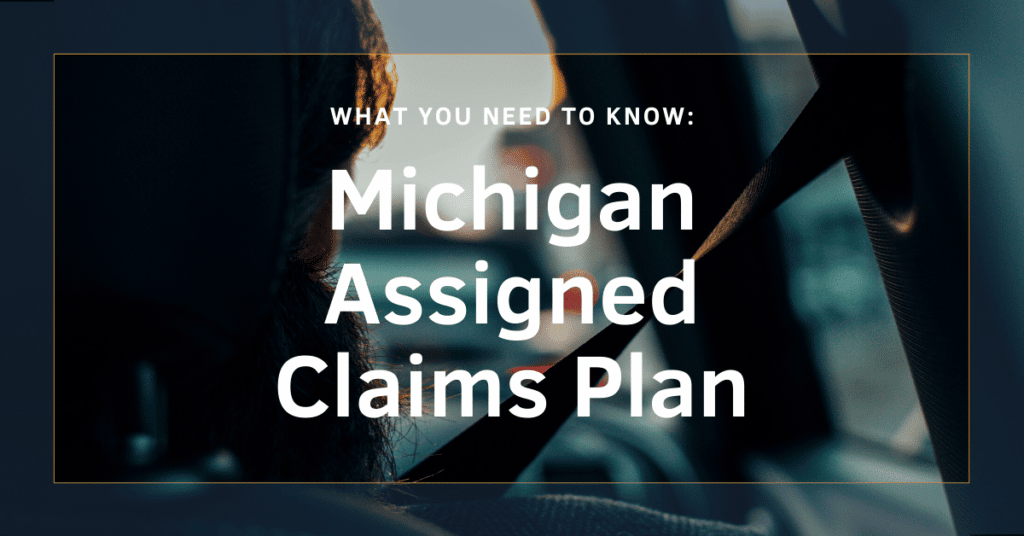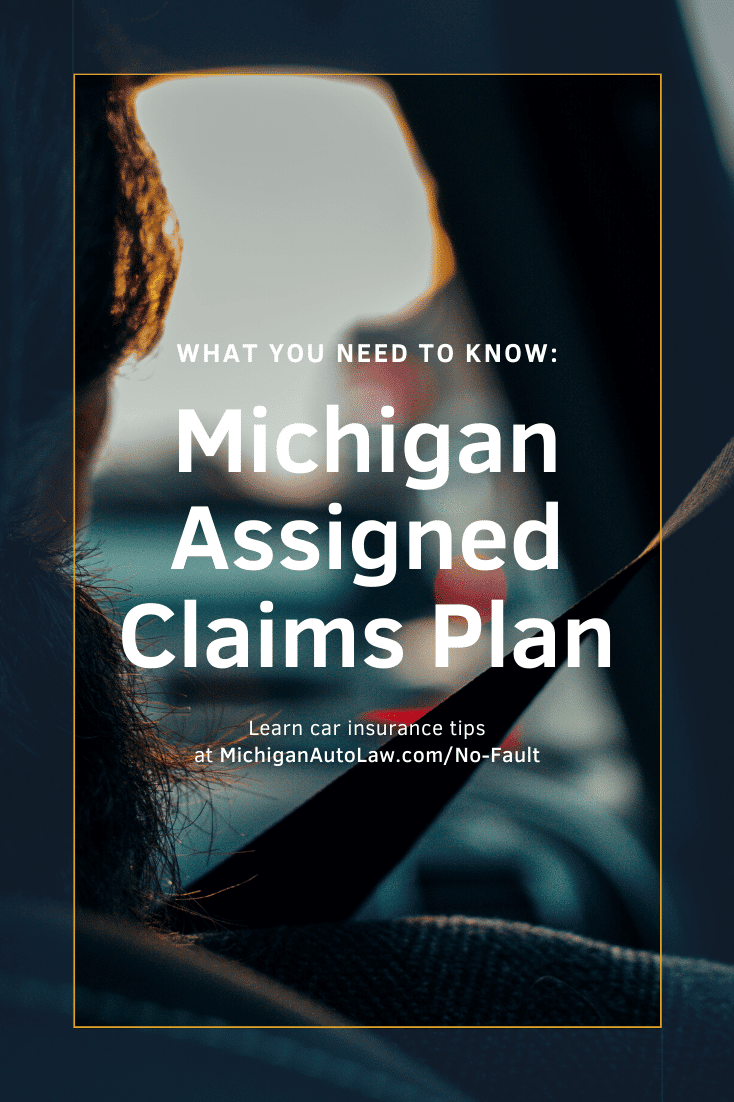
Michigan Assigned Claims Plan: What You Need To Know
The Michigan Assigned Claims Plan is a state agency that provides No-Fault PIP benefits coverage to car accident victims who do not otherwise have coverage. The MACP assigns car insurance companies to handle claims for uninsured victims. Medical benefits coverage is capped at $250,000.
The No-Fault PIP benefits that are provided by the MACP include:
- Medical Expenses
- Medical Mileage
- Wage Loss
- Replacement Services
- Attendant Care
What is the Michigan Assigned Claims Plan?
The state of Michigan provides a safety net of insurance coverage for No-Fault personal protection insurance benefits in situations where a person is involved in a car accident, but there is no insurance company available to provide No-Fault benefits.
This safety net is called the “Michigan Assigned Claims Plan” (MACP). It is administered by the Michigan Automobile Insurance Placement Facility (MAIPF). The Michigan Automotile Insurance Placement Facility is considered the insurance company of last resort.
Among its duties, the Michigan Automobile Insurance Placement Facility (MAIPF) creates the procedures for ensuring that Michigan No-Fault benefits are provided to uninsured auto accident victims.
How do I apply for No-Fault benefits through the Michigan Assigned Claims Plan?
In order to claim benefits from the MACP/MAIPF, an injured person must complete the MACP’s application for No-Fault benefits form and “provide reasonable proof of loss . . .” (MCL 500.3172(3))
Click here to see the No-Fault application for the Michigan Assigned Claims Plan.
Because of the importance of the application and the pressing need for accuracy and completeness, it is advised that a car accident victim consult with an experienced car accident lawyer to review his or her application before filing it.
Within sixty (60) days of receiving an application for No-Fault benefits, the MACP/MAIPF or an auto insurance company assigned to handle the claim “shall specify in writing the materials” that a person claiming benefits must provide to demonstrate “a reasonable proof of loss.” (MCL 500.3172(3))
How long do I have to file a claim with the Michigan Assigned Claims Plan?
Importantly, a car accident victim must file his or her claim for No-Fault benefits with the MACP “within 1 year after the date of the accident.” (MCL 500.3174)
Will the Michigan Assigned Claims Plan cover my medical bills?
Car accident victims’ medical bills will be paid as part of the No-Fault medical coverage provided by the auto insurance company that has been assigned by the MACP to handle the victim’s claim.
However, car accident victims’ No-Fault medical coverage through the MACP will be capped at $250,000. (MCL 500.3172(7)(a))
For accident-related medical bills that exceed that amount, the victim will have to seek other sources of medical coverage such as private health insurance or Medicaid or Medicare. Alternatively, the car accident may also be able to sue the at-fault driver who caused the auto accident for “excess” medical benefits.
Can the MACP cut off my No-Fault benefits?
The Michigan Assigned Claims Plan can deny a claim for No-Fault benefits if it determines that a car accident victim is not eligible. (MCL 500.3173a(1))
Additionally, the MACP can “suspend benefits” to a car accident victim if he or she “fails to cooperate” with the Michigan Automobile Insurance Placement Facility, which is the entity that administers the MACP. (MCL 500.3173a(1))
Who does the MACP help?
The Michigan Assigned Claims Plan helps car accident victims who don’t have No-Fault auto insurance of their own and are not otherwise covered by a No-Fault insurance policy – such as through an insurance company of higher priority and/or a policy in which a spouse or resident relative is a named insured.
This includes not only vehicle passengers, but also pedestrians, bicyclists and motorcyclists.
In those situations, the MACP will “assign” a Michigan auto insurance company to pay for and provide No-Fault benefits to the “uninsured” person.
Importantly, the MACP (and, thus, the Michigan Automobile Insurance Placement Facility) does not apply to nor does it help provide No-Fault PIP benefits to a car accident victim who was driving his or her own “uninsured” vehicle.
What types of cases does the Michigan Assigned Claims Plan get involved in?
One example of when the MACP gets involved to provide No-Fault benefits is when a pedestrian who does not own a car or have auto insurance and who lives alone is struck by a hit-and-run driver or a driver who is uninsured. Here, there is no PIP coverage that applies, as the injured pedestrian does not own a car or have auto insurance and does not live with a resident relative who has auto insurance.
Therefore, the injured pedestrian would submit an application for No-Fault benefits to the Michigan Automobile Insurance Placement Facility (MAIPF), which will assign the injured pedestrian’s claim to a No-Fault insurer for payment of PIP benefits.
Another example of when the MACP/MAIPF gets involved is when disputes arise between auto insurance companies as to which one is the highest priority and, thus, is obligated to pay No-Fault benefits on a car accident victim’s claim. The MACP/MAIPF will serve as a “mediator” of sorts in these priority disputes among insurers. While the dispute is being resolved, the victim can file a claim for No-Fault benefits with the MACP and receive immediate No-Fault coverage.
Eventually, the plan and the assigned insurer will be reimbursed by the auto insurance company that is, ultimately, determined to be liable for the No-Fault claim. Importantly, those making a claim must still provide proper notice to the Michigan Automobile Insurance Placement Facility (MAIPF) and make timely submissions of proof of incurred benefits.
Injured and need a lawyer? Call Michigan Auto Law
If you have been injured in a car accident and you have questions about your legal rights to Michigan PIP benefits, you can call toll free anytime 24/7 at (800) 968-1001 for a free consultation with one of our experienced auto accident attorneys. You can also get help from an experienced accident attorney by visiting our contact page or you can use the chat feature on our website.






